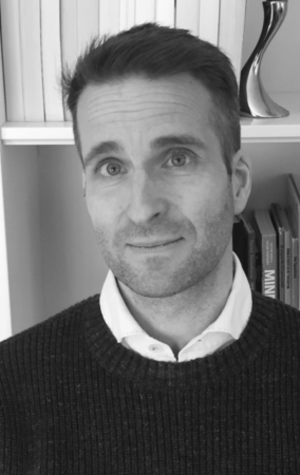Dr Olaf Verschuren has been working with the Centre of Excellence for Rehabilitation Medicine, the UMCUtrecht Brain Centre, Utrecht University and De Hoogstraat Rehabilitation in the Netherlands for over a year to tackle the challenge of poor sleep, nutrition and physical activity in children with CP.
The doctor and his colleagues started by interviewing the parents of 15 children living with CP.
The clinicians wanted to know what concerns existed around making sure their children received proper sleep and nutrition, and that they were getting enough daily movement.
It quickly became clear to the project group that parents struggled in all three of the key areas being addressed. They worried about doing too much, as much as they worried about doing too little.
Also clear from the interviews, was the absence of evidence-based resources that could effectively support the families through this specific challenge.
The project team were well aware of the strong correlation between long-term health quality and sleep, nutrition and physical activity.
Obviously, it’s not practical or cost effective for families to bringing their children to see clinicians every day. So, how can parents give their children the highest possible quality of care in their homes?
Collaborating with parents
Dr Verschuren and his colleagues began collaborating with parents to develop online resources that would be useful in day-to-day family practice.
Alongside parents, the project group started identifying relevant sub-themes of sleep, nutrition and physical activity.
The collaboration was effective. A care-path was formed that followed three steps:
- Screening children with CP in the 0 – 8 years age group
- Identifying children with, or at risk of, problems with sleep, nutrition, and/or physical activity
- Providing care and support for these children and their families, starting with the resource development.
Bringing home the resources
In June 2019, the project published a series of resources to the CP-Nederland website (a patient focused website from the organisation previously known as BOSK) to address each of the three related health areas.
The resources are presented in a variety of easy to understand formats including infographics, videos, posters, cards and text.
In the first two months alone, the new web pages had been visited more than 1000 times and the infographics were downloaded more than 400 times.
Anecdotal outcomes
Most of the feedback received by the project team is around sleep.
“Screening for sleep opened the eyes of many parents,” says Dr Verschuren.
“But also, the physicians did not realise that sleep affected so many children and their parents.”
From the 80 parents the team have screened in the past six months, more than 75 per cent indicated one or more sleep problems.
Most parents have reported feeling that the website provided plenty of information on all the three areas covered by the project.
“There have been many suggestions that a great addition to the website would be a child-friendly resource as well,” says Dr Verschuren.
“We’re hoping to find funding to work on that in the near future,” he says.
Parents have also expressed their appreciation for all the information on the website being based on evidence that it is clearly organised and on a website they trust.
Future plans
Dr Verschuren says that being involved in a rehabilitation program is like being a professional athlete.
“For professional athletes, physical activity and exercise training programs are just part of their formula for success,” he says.
“Elite athletes know the importance of nutrition and sleep as ADDITIONAL key factors in sporting success.
“Physical activity, sleep and nutrition are considered the three main components that allow an individual’s body to achieve its goals related to activities in daily life.
“That’s why we need to pay attention to them and to optimise them for the maximum outcome we (the child, parents and clinicians) are aiming for,” he says.
While the website has filled a void for families in The Netherlands, Dr Verschuren and his colleagues know that easy to access information is not going to be enough on its own to transform the lives of children with CP.
They have their investigations set firmly on understanding:
- how parents perceive the use, utility, usefulness and impact of the online resources
- what more they need to enable them to integrate that knowledge into their lives and
- how to empower them to support the long-term health of their child with respect to sleep, nutrition and physical activity.
In the meantime, the group are translating their resources into English to make them more accessible across the World.
This project was funded by the Innovation Fund from Health Insurance Companies in The Netherlands.
To see the full suite of resources, visit the CP Nederland website.

